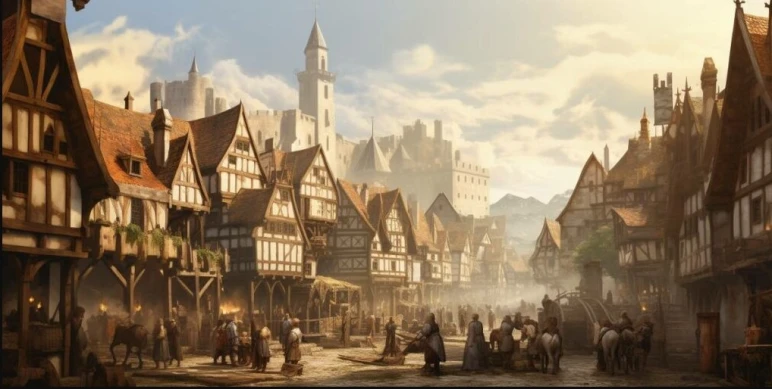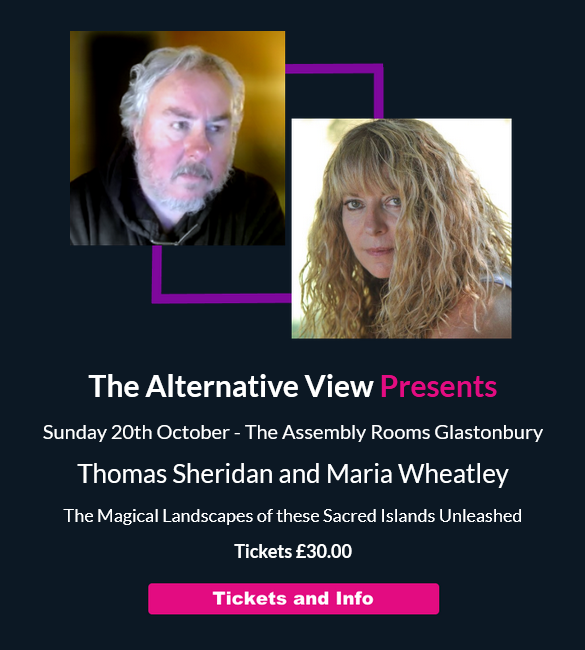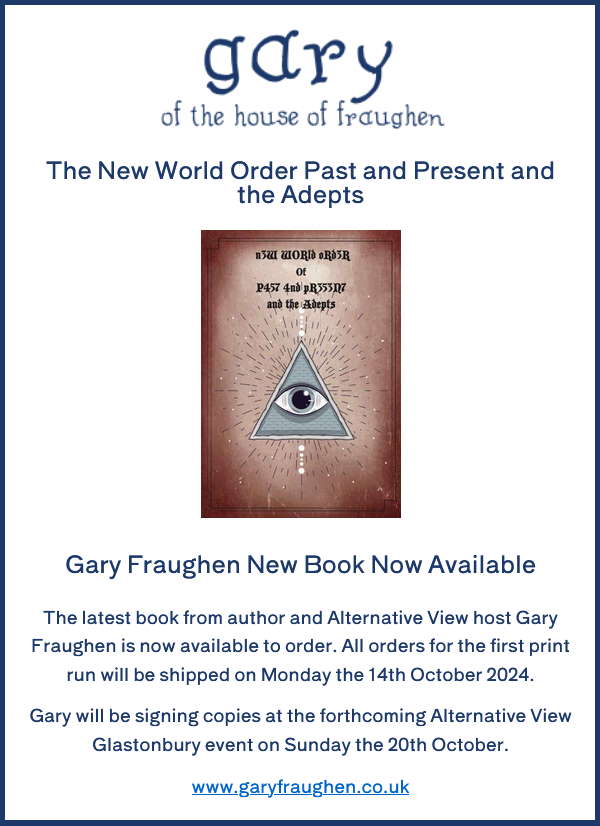Natural Complexity
Thu 5:00 pm +01:00, 24 Oct 2024
by W.D James
How can a large, complex society be natural?
We can clearly see how a relatively simple tribal type of social structure would be an organic or natural form of social organization. Aristotle gives us a classical philosophical account of organic development from the family to the village to the self-sufficient city state (of say ten to twenty thousand inhabitants). From our contemporary perspective within the complex modern centralized state, a return to any of these forms may seem romantic or undesirable. Short of a societal collapse that necessitates a return to these small-scale structures, it is hard to imagine us choosing them or figuring out how to devolve society to such levels in an orderly way.
Modern anarchists of various stripes have provided accounts of federalism to theorize well-attenuated, complex societies, built from the bottom up. Some of these emphasize organization at the level of labor unions forming into labor cartels and others focus on the associating of local entities into national and even global structures. However, these theorists had largely given up, or thinned down, the pre-modern metaphysical understanding of ‘nature’ characteristic of the Aristotelian tradition. Johannes Althusius’ Politica (1603), in addition to being the first systematic modern counterthrust at the developing theory of the centralized state, provides a fully Aristotelian (anti-modern) account of a large, complex federated society.
Hence, I believe his theory can provide an appealing theoretical vision for contemporary proponents of liberty. No doubt, establishing an Althusian federal republic would itself necessitate huge changes. However, those changes may well lie within the scope of a realistic revolutionary politics. To pick up the American theme from the first essay, the United States from 1781 to 1789, under The Articles of Confederation, was clearly a large federal republic (though not on an Althusian model). Even under the Constitution, until the time of the Civil War, the local elements were much more prominent in our actual political culture and it is still not meaningless to speak of us having a federalist form of government.
The Althusian federal republic
The building blocks of Althusius’ federal structure are the family, the collegium, the city, the province, and commonwealth (republica). As a legal theorist, he spends a lot of time going into detail about how each level of association would be formed, its legal criteria, the exact nature of its relationship to higher and lower levels of association. Here, we will just focus on the overall structure he outlines.
The family
Althusius distinguishes between the family, what we might think of as a household, and the larger kinship group of extended family members. In both cases, the link between natural relationship and shared interest is primary in distinguishing the family as the basic unit of association in the overall federative structure. The family employs primarily agreement and love in its formation and operation.
The collegium
The collegium is a “spontaneous” and voluntary association. For Althusius, it is formed when the head of a household goes into the public world to carry out public business. The collegium represents the formation of guilds, corporations, and other civil associations. Essentially, such organizations are based on necessary social functions. The society needs bakers, so there are bakers, and they would form themselves into a baker’s guild both to regulate their own businesses and to relate to larger elements in the federative structure. The collegium operates mainly through agreement and mutual aid.

The collegium thus communicates the interests and needs of bakers up the ladder and communicates the needs society has of bakers down the ladder back to the membership. Any group of people with a shared interest would organize themselves into such groups. Though he gives much attention to ecclesiastical governance, he largely avoids the issue of state-church relationships by including churches as collegia: one can imagine guilds of clergy and other associations to carry out the business of the churches; charitable organizations, colleges, etc…
That Athusius chooses to emphasize the ‘communication’ aspect of Aristotle’s koinonia (association, community, sharing) is significant. This communication up and down the levels of association, as well as vertically between them, serves as the life-force of his federal republic. This provides the organic, living, connections between all the different associations and allows them to be a genuine social body, not a social machine as the centralized modern state is usually conceived of, such as with Hobbes’ Leviathan. It is this continual and pervasive communication that allows the social body to function harmoniously and develop, grow, and adapt to changes and challenges. This develops Aristotle’s emphasis on political participation in a unique direction that accounts for Althusius’ ability to theorize a large and complex society as still natural.

The city
The city represents the level of association where all the social functions and their representative associations, the collegia, are integrated. It is the first genuinely ‘public’ association and constitutes the ‘community’ proper. Althusius observes that “human society develops from private to public association by the definite steps and progressions of small societies.”i Within nature, the big comes from the small.
This constitutes a political order. “Political order in general,” Althusius asserts, “is the right and power of communicating and participating in useful and necessary matters that are brought to the life of the organized body by its associated members.”ii The city consists of “many families and collegia” and will appoint what he terms a “superior” to administer the public business of the community. This superior may be either a single person or a council. The superior exercises their delegated authority only with the consent of the members of the community and only with the strictly defined limits of their authority. Althusius sees a separate Senate existing alongside the superior to check the superior’s abuse of power. The Senate is itself a collegium formed by the various families and collegia of the community.
The province
For Althusius, the province is an intermediary unit linking communities to the “universal” level of association. It has many ecclesiastical functions, which is not our focus in this examination. As a Calvinist, this is where he sees the local, largely autonomous, churches associating in Presbyteries. There are also civil functions. For instance, the province is where he sees preparations for defense primarily occurring. He foresees a continued “order of the nobility” in his republic, charged primarily with organizing defense of the province from foreign violence. What I think, perhaps looking back at the American example, is this replaces a national standing military. Lacking a ‘nobility’ we could, as with the whole civic republican tradition, easily envision local volunteer citizen militia organized up to a regional level.

The commonwealth
The ultimate level of association recognized is that of the “commonwealth.” The social bond constituting this association is “a tacit or expressed promise to communicate things, mutual services, aid, counsel and the same common laws to the extent that the utility and necessity of universal social life in a realm shall require.”iii
Althusius is careful to point out, since he is arguing against the centralized state theory of Jean Bodin, that this higher association is only formed from below. One could observe, with the anarchists, that federalism just is the bottom-up method of establishing a complex society. This affirms the people as the ultimate source of sovereignty.
He notes that this sovereignty can be organized as a monarchy, a “polyarchy,” or as a democracy.
By way of a sidenote, Kentucky, though defined by the US Constitution as a ‘state’, recognizes itself as a commonwealth. It may be long submerged, but there is a reason for that.

Tyranny
Althusius defines tyranny as “the contrary of just and right administration.”iv The tyrant (he recognizes this could be one person or a group of people, a whole administration) is the destroyer of the organicity of the social body. “A tyrant is there one who,” he explains, “violating both word and oath, begins to shake the foundations and unloosen the bonds of the associated body of the commonwealth.”v
A tyrant may have come into power by one of two means. They may have been legitimately constituted as the “supreme magistrate” via proper means or they may be a usurper extra-legally setting themselves up in a position of power. In the latter case, the matter is legally straightforward for Althusius: every private citizen or association of citizens has it absolutely within their right to kill such an external invader of the social body.
In the case of a legitimately appointed magistrate who becomes tyrannical, it is legally more complicated. Althusius can be seen as operating in the Chrisitan ‘resistance to tyrants’ tradition and supports the dominant position within that tradition of his time that only the ‘lesser magistrates’ may resist a justly appointed entity that turns tyrannical. So, the people would expect their delegates at the city and provincial levels to take care of the problem.
Althusius does not make this explicit, but I think we can see a big part of why that organization for defense occurred at the provincial, not the national, level. Those lesser magistrates have their armies or organized militias. Those can be directed internally to provide proper attention to tyrants just as well as they can be directed externally against invaders.
Who knows how the governors actually think of it, but the US has actually maintained this structure. The state governors are ‘lesser magistrates’ and they each command a citizen militia in the form of their state national guard. Of course the national government has a much larger military, but it was not until after World War Two that Americans abandoned their fear of a large standing national military in peace time. This was a central principle of the federalist and civic republican traditions of preserving liberty. In fact, the President is elected not by the individual citizens of the US but by the states in the electoral college. These are all echoes of a more genuine federalist past. So, when one political tendency actively seeks to abolish the electoral college and makes maneuvers to subsume the state military forces directly under national control, doesn’t that have the look of ‘tyranny’ about it? In the US, those structures of federalism have been progressively drained of power. Yet they have not yet been dismantled. They may prove useful to the cause of liberty yet.
Natural complexity
Althusius has provided us a solidly Aristotelian way of thinking about a complex modern society. It preserves the normatively natural, or organic, conception of social functioning aimed at promoting human flourishing via seeking the common good embodied in Aristotle’s original theory. The federation naturally grows from the bottom up.
Our modern world has become thoroughly anti-Aristotelian. But there was Althusius, right at the beginning, going – ‘hey, there is another option than that centralized state thing.’ If we were to tap back into some of the wisdom of our premodern ancestors I think Althusius can be quite useful in helping us think through how to reincorporate the Aristotelian bits of that wisdom.
Further, I think we should add him to the Pantheon of modern defenders of liberty. He was one of the very first in that tradition and it would probably serve us well to recapture an understanding of his insights in continuing to develop that particular tradition.
As we saw earlier, Gustav Landauer had called for a federal system as ‘a republic of republics of republics.’ If we think of a political ideal being a ‘federal republic’ and emphasize the deeper meaning of each of those terms (with Althusius informing our understanding of the former), we could formulate a vision which embodied these salient features:
- An organic, bottom-up, federative structure;
- Motivated by the natural human social forces of agreement, mutual aid, and love;
- Which supports a large and complex society which is at the same time thoroughly decentralized;
- This would represent the plethora of naturally-formed social associations, each aimed at performing a function in our overall quest to live good, flourishing, human lives;
- Which, hence, embodies the natural telos (purpose or aim) of human nature;
- A robust conception of the ‘common good’ as the consolidated common vision of these locally rooted associations;
- A republican emphasis on individual and citizenly virtue, prioritizing the common good over particular socially destructive interests;
- Incorporating a republican understanding of liberty as ‘non-domination’, both politically and economically;
- A citizenry which is extremely jealous of its liberties both individually and within the civil association they form;
- And which is structurally and culturally resistant to tyranny.
Source: https://winteroak.org.uk/2024/10/23/natural-complexity-reviving-federalism-part-3/

















